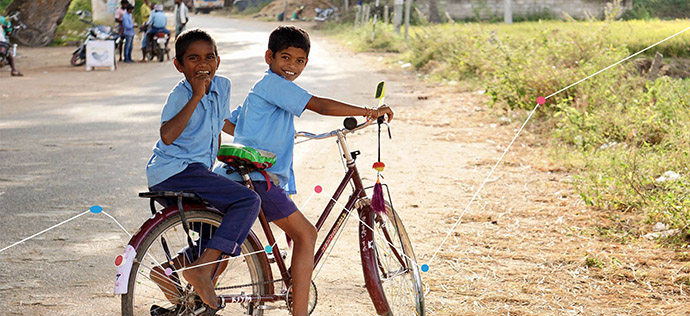2017 Lancet Countdown on Health and Climate Change Released |
| CSTPR Director, Max Boykoff contributed to comprehensive, UK-led report on critical connections between climate change and human health. |
|
Climate change is unequivocally affecting the health of people around the world today, with a disproportionate impact on vulnerable populations, according to an international report published in the prestigious medical journal Lancet. The delayed response to climate change during the past 25 years has already jeopardized human life and livelihoods around the globe, concluded the report, whose 55 authors includes CIRES Fellow Max Boykoff, a University of Colorado Boulder associate professor of Environmental Studies and Director of the Center for Science and Technology Policy Research. Boykoff and his colleagues contributed to the Lancet report an assessment of trends in scientific publications about climate change and human health—such papers are increasing markedly, the team found. And they found that media coverage of climate change and human health is on the rise globally, but not so in Europe or North America. “We care about media coverage because the media help foster individual and community discussion about the challenges associated with a changing climate,” said Boykoff. “And media coverage can influence policy decision making, too,” said Boykoff. The new report, “The 2017 Report of the Lancet Countdown on Health and Climate Change,” is an international research collaboration that provides a global overview of the relationship between public health and climate change. This year’s report follows the 2015 Lancet Commission on Health and Climate Change. After considering 40 indicators, the report’s authors described several overarching conclusions:
Report contributors include academics and technical experts from 24 institutions around the globe, such as the World Bank, World Health Organization, University College London, and Tsinghua University in Beijing. Researchers used 40 unique indicators (including health themes such as exposure and vulnerability to climate change, mitigation techniques, and economic impacts) to assess the global response to climate change and its associated impacts on human health. For example:
The report calls for global action in the wake of these impacts, recommending:
This CIRES News story was modified from Lancet Communications. |


